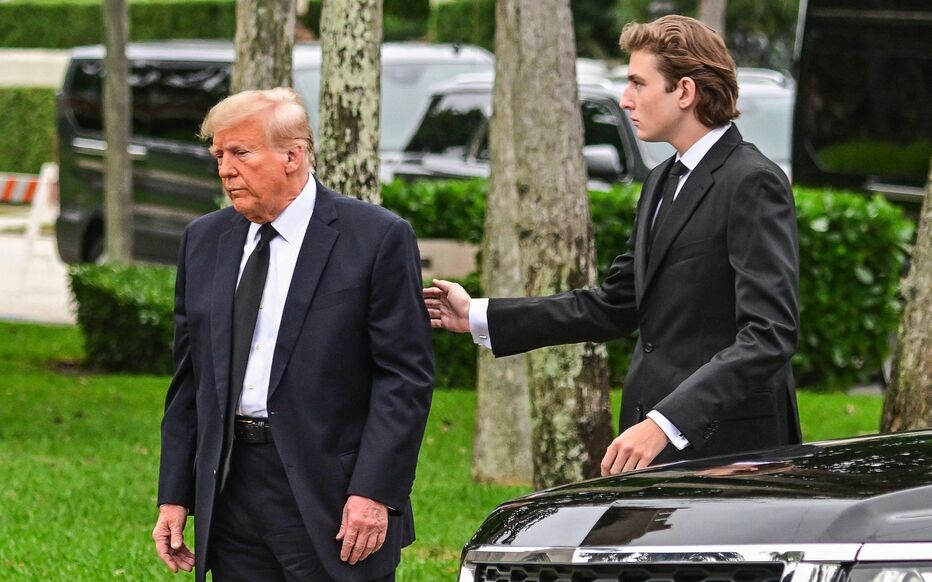November 9, 2024
In the midst of Donald Trump’s intense election campaign, one of his biggest allies was his 18-year-old son, Barron Trump. While the former president’s efforts were directed at traditional rallies and speeches, Barron focused on a different stage: the digital “manosphere,” an online space of podcasters, YouTubers, and livestreamers popular among young men. Recognizing the potential of this often-overlooked audience, Barron orchestrated a series of interviews and appearances for his father with popular influencers like Adin Ross, the Nelk Boys, and Logan Paul, effectively building a bridge between Trump’s campaign and Gen Z.
Barron’s influence became apparent during Trump’s August interview with Ross, a brash 24-year-old livestreamer whose millions of young followers are more typically interested in gaming and pop culture than politics. “My son Barron says hello,” Trump told Ross, noting, “He’s a big fan of yours.” For Barron, it wasn’t just about saying hello; he saw Ross and his fellow creators as conduits to a generation that craves authenticity and bold personalities—qualities Barron believed his father could connect with.
The mastermind behind Trump’s digital outreach, Barron understood the pull these influencers had over young audiences, including the often controversial, “bro-culture” influencers who populate the manosphere. Barron and his close friend, Bo Loudon, reportedly spent months researching and strategizing how to bring Trump onto the platforms that dominate Gen Z’s media landscape. “He’s in my age group, he knows who’s popular at this time,” Loudon explained in a recent interview, shedding light on Barron’s instincts to focus on nontraditional media over mainstream channels.
This unconventional outreach strategy included appearances on podcasts like Logan Paul’s ImPaulsive, where Trump discussed everything from his favorite UFC fighters to his perspective on media and business. Logan and his brother Jake, who have built empires on YouTube and through the burgeoning influencer boxing industry, drew millions of young viewers with each episode. For Barron, leveraging these platforms was key to presenting his father in a relatable, down-to-earth manner to a new audience.
The younger Trump’s influence also extended to tapping Dana White, the head of the Ultimate Fighting Championship (UFC), whose support offered Trump access to UFC fans, a group largely aligned with the values and appeal of the manosphere. Sitting alongside White at a UFC event, Trump received thunderous applause as Kid Rock’s “American Badass” played, reinforcing the connection Barron aimed to foster between his father and younger voters.
Many of the figures Barron identified as important to the campaign—like Ross, the Nelk Boys, and Theo Von—regularly produce content that’s edgy, occasionally controversial, but undeniably influential. By guiding his father into this world, Barron not only brought Trump face-to-face with millions of previously untapped supporters but redefined how a modern campaign could connect with younger audiences.
At the heart of the campaign strategy was Barron’s belief that Trump could energize an audience overlooked by traditional media, speaking to a generation who values voices outside mainstream culture. In a campaign filled with high-stakes political maneuvers, Barron’s contributions helped Trump’s message resonate on platforms where young voters congregate. As his father took the stage on election night, celebrating an unexpected victory, Barron’s work behind the scenes had positioned the campaign to successfully capture a crucial demographic.
Sources:
- Vanity Fair. (2024). “Barron Trump’s role in shaping his father’s Gen Z outreach.”
- Fox News Digital. (2024). “How Barron Trump helped craft Donald Trump’s podcast and influencer strategy.”
- Piers Morgan Interview. (2024). Bo Loudon discusses Barron Trump’s role and influence in the campaign strategy.



